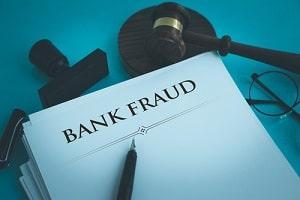What Are the Potential Defenses to Federal Bank Fraud Charges?

When the average person thinks about what it means to steal money from a bank, images of masked robbers pocketing bundles of cash may come to mind. However, many schemes involving the unlawful acquisition of bank funds are much more technical in nature. Bank fraud refers to activities that intentionally defraud a financial institution. It is a criminal offense prohibited by federal law and investigated by local law enforcement as well as the U.S. Secret Service. If you or a loved one is facing federal charges related to bank fraud, it is critical to consult an experienced criminal defense attorney as soon as possible.
Understanding Bank Fraud Accusations
Bank fraud is defined by 18 U.S. Code § 1344 as knowingly:
-
Defrauding a bank or other financial institution
-
Acquiring money, assets, credits, or securities from a financial institution through false claims or misrepresentations
An individual may face federal bank fraud charges even if the scheme to steal from or defraud the bank was unsuccessful. Bank customers as well as insiders such as bank employees may be charged with bank fraud. This offense is punishable by up to $1 million in fines and 30 years in prison. If more than one person is involved in a scheme designed to illegally obtain property from or defraud a bank, they may also face charges for conspiracy. A person can be charged with bank fraud conspiracy even if he or she did not personally commit fraudulent acts. Knowingly aiding someone who intends to commit bank fraud is enough to warrant these charges. Bank fraud charges are often accompanied by related charges for wire fraud, tax fraud, or identity theft.
Common Defenses Against Bank Fraud Charges
As with any criminal case, the burden of proof in a fraud case lies with the prosecution. If the prosecution cannot prove beyond a reasonable doubt that the defendant broke the law, he or she will avoid a conviction. Many criminal defendants accused of bank fraud are acquitted after it is shown that there is insufficient evidence to prove their guilt.
Terms like “knowingly” and “intentionally” are used to describe a defendant’s awareness of his or her actions. Lack of intent is a common defense against many white-collar crimes such as fraud. The prosecution cannot secure a conviction for bank fraud unless it can prove that the defendant’s actions were intentional. The prosecution must also prove that the defendant’s falsifications were “material” or relevant. For example, misrepresenting your income in order to qualify for a loan may not be considered bank fraud if the misrepresentation was inconsequential to the bank’s decision.
Contact a Dallas Fraud Defense Lawyer
If you or someone you know is facing criminal charges related to fraud or conspiracy to commit a federal offense, you need a seasoned attorney who will fight for your rights and freedom. It is imperative that you speak with an accomplished Collin County criminal defense lawyer at The Crowder Law Firm, P.C. right away. Attorney Darlina Crowder has secured hundreds of “not guilty” verdicts at the state and federal levels. Call our office today at 214-544-0061 to schedule your free consultation and case review.
Source:
https://uscode.house.gov/view.xhtml?req=(title:18%20section:1344%20edition:prelim)%20OR%20(granuleid:USC-prelim-title18-section1344)&f=treesort&edition=prelim&num=0&jumpTo=true
















